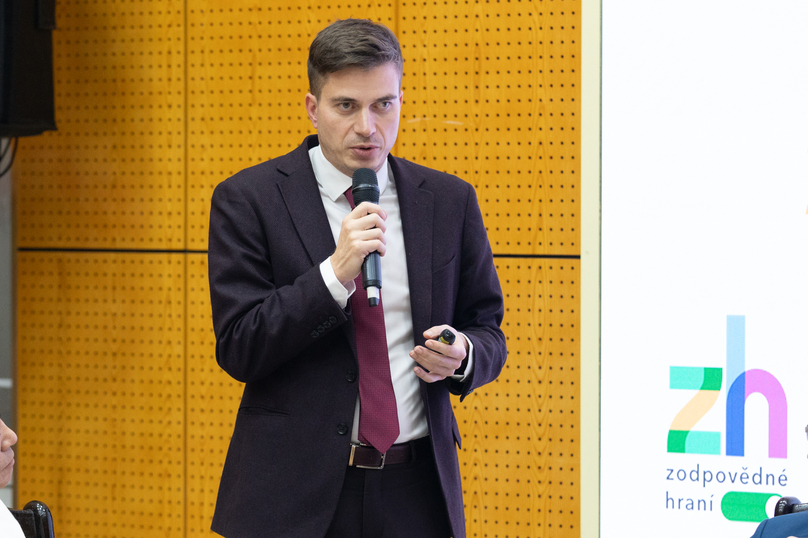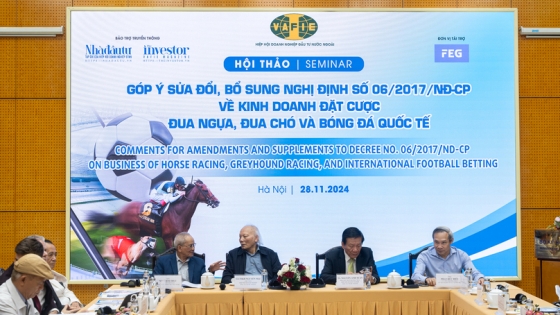By
Tri Duc
Thu, November 28, 2024 | 5:14 pm GMT+7
Vietnam’s decree on horse racing, greyhound racing and international football betting remains irrelevant seven years after it was issued, experts told a forum in Hanoi on Thursday.
The VAFIE, The Investor hold a seminar on Decree 06/2017, in Hanoi on November 28, 2024. Photo by The Investor/Quang Huy.
While the regulations reflected the government’s aspiration to develop the nation’s betting industry, implementation obstacles have led to negative socioeconomic impacts, said Nguyen Anh Tuan, standing vice chairman of the Vietnam’s Association of Foreign Invested Enterprises (VAFIE) – the forum’s organizer.
The event, co-organized by The Investor, seeks suggestions to amend the government’s Decree 06/2017.
Tuan noted that the National Assembly Standing Committee has set 2025 as the deadline for the Government and the Ministry of Finance to amend the decree.
Therefore, suggestions made at the workshop would be submitted to the Ministry of Finance to facilitate the drafting process, he added.
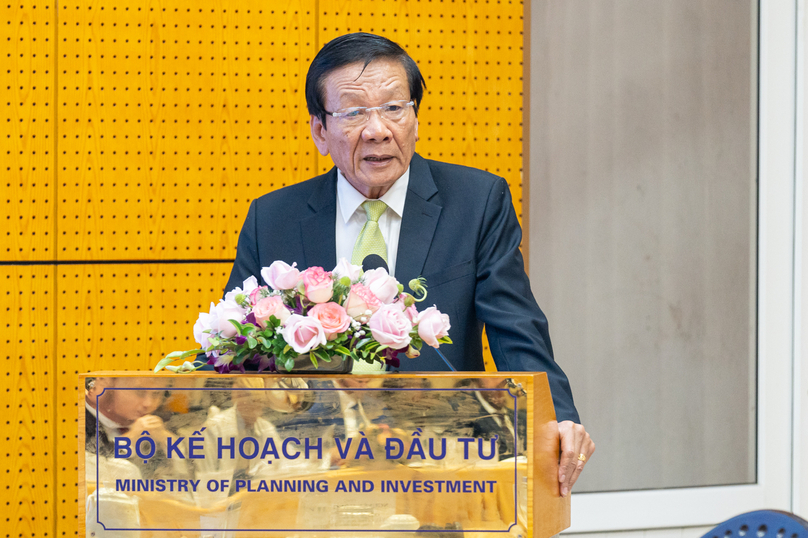
VAFIE standing vice chairman Nguyen Anh Tuan. Photo by The Investor/Quang Huy.
VAFIE chairman Prof. Nguyen Mai stressed Party General Secretary To Lam’s “no more banning of irregulated activities” approach.
However, sports betting was stuck as a “regulated sector but without willingness to manage it,” he said.
This has led to many violations including illegal football betting by both domestic and international participants, leading to losses of billions of USD for the State budget and legitimate businesses in Vietnam, he added.
Mai also pointed out an issue with the distribution of betting tickets, which he said was outdated, and with delayed implementation of Internet-based tickets.
He clarified that investments in different distribution systems were costly and wasteful. Distribution via phone and phone messages will be outweighed by Internet-based tickets, he said.
Other issues included the high payment of 5% of the revenue to the state budget, stricter advertising rules and discontinuation of licenses for businesses established before Decree 06/2017.
He recommended that firms be asked to pay 5% of the profit, instead of revenue, ensure no suggestive content in advertisements and early implementation of Internet-based tickets and phone tickets.
He made recommendations of the State budget collection at 5% of the profit, not revenue, no suggestive contents in advertisements, and early implementation of Internet-based tickets and phone tickets.
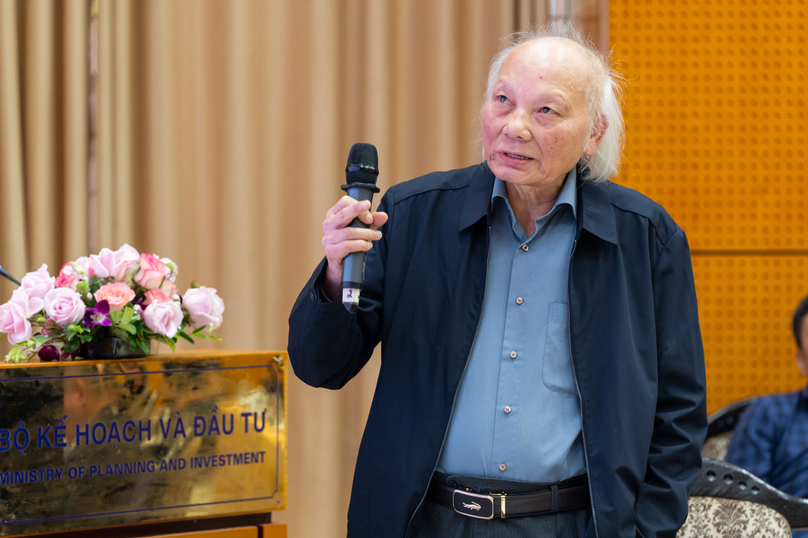
VAFIE chairman Prof. Nguyen Mai. Photo by The Investor/Quang Huy.
Can Van Luc, chief economist with BIDV bank and director of BIDV Research & Training Institute, stressed that Vietnam’s strict management of sports betting has led to the sector’s underdevelopment.
He suggested Vietnam manage the industry by applying taxes and not discourage the industry with policies. The country should also embrace distribution of betting tickets via the Internet, he added.
Mai proposed the sector better manage players, including the banning of people like convicts, bankrupt people and those under social welfare.

Can Van Luc, chief economist of BIDV bank and director of BIDV Research & Training Institute. Photo by The Investor/Quang Huy.
Hoang Ngoc Nhat, chairman of local firm Thien Phuc JSC, said the industry can attract betting worth $6 billion a year, even $10 billion. Suitable management can help prevent resource losses from cross-border betting, he argued.
While the sector was attractive to many investors, many refrained from making moves due to obstacles in the legal framework, he said.
Nhat suggested that the decree should permit activities across Vietnam, not only in 20 localities per current rules.
He also suggested that football betting be extended to more tournaments outside Vietnam and that betting in matches involving Vietnamese teams require approval of the Ministry of Culture, Sports and Tourism.
Besides, technology should be used to prevent cash bets and money laundering activities, he said.
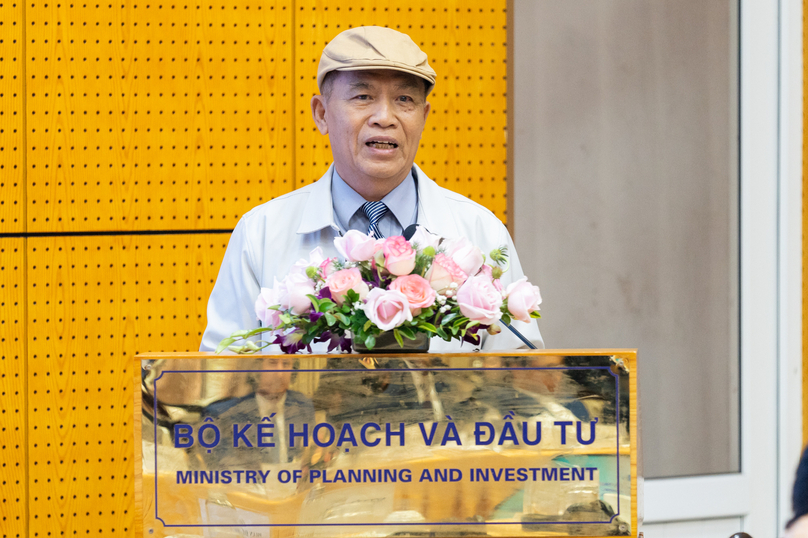
Hoang Ngoc Nhat, chairman of Thien Phuc JSC. Photo by The Investor/Quang Huy.
Nguyen Ngoc My, chairman of local business Vabis Group, said Vietnam should allow bets on horse racing, greyhound racing, and international football to be distributed via the Internet.
He noted that in Industry 4.0 era, digitalization and the application of the Internet in tandem with state management through e-government was an “inevitable and irreversible strategic trend.”
Concerns about the inability to control businesses and participants in betting are not sufficient reason to restrict the distribution of betting tickets via the Internet.
He also felt that a license should facilitate all kinds of betting ticket distribution, instead of issuing separate licenses in phases, so as to cut costs and administrative procedures for firms.
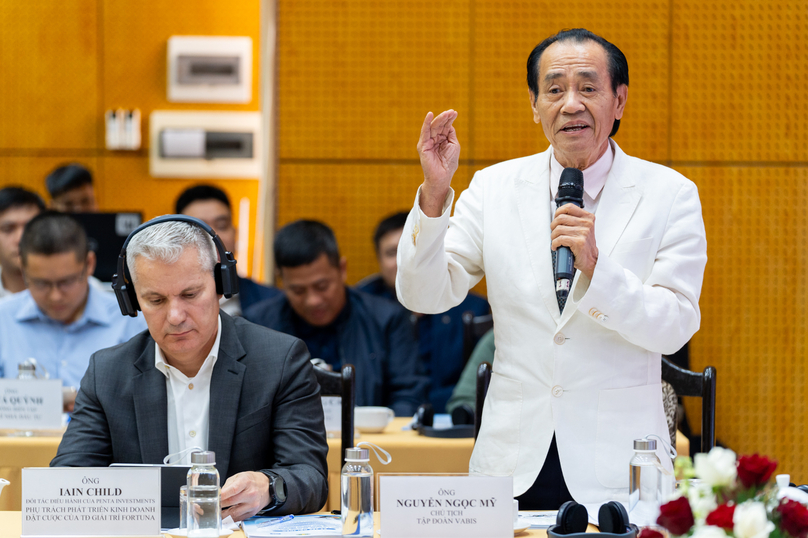
Nguyen Ngoc My (standing), chairman of local business Vabis Group.
Iain Child, managing partner at Penta Investments – betting development partner of Fortuna – said operating in regulated markets not only mitigates risk but also fosters trust and sustainability in the gambling industry.
Legal compliance can help reduce the risk of penalties and shutdowns while ensuring fair play and transparency for customers by providing mechanisms for dispute resolution and protection of player rights, he said.
Penta said that “optimal gambling taxation” at a maximum of 25% of operators’ gross gaming revenue would ensure long-term sustainable market development.
A dominant share of over 80% of the market operated by licensed operators can help maximize tax collection (gaming/employment/corporate) and provide other benefits including employment opportunities and sponsorships.
It can also boost effective player protection through operators’ adherence to strict responsible gambling and digital protection measures, including deposit limits and age verification, he said.
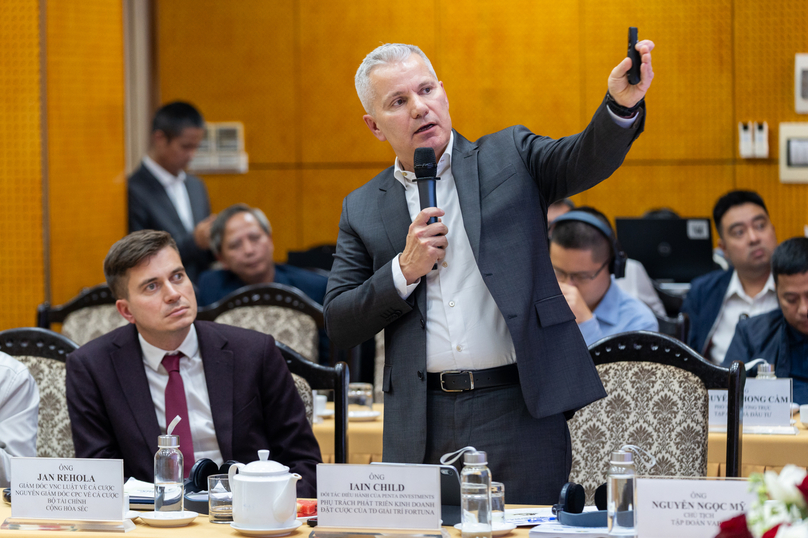
Iain Child (standing), managing partner at Penta Investments. Photo by The Investor/Quang Huy
Jan Rehola, a member of the Expert Group for Online Gambling at the European Commission, said that in 2021, Sweden was the European country with the highest share (80%) of online gambling activity, followed by Latvia (75%), Lithuania (67%), Romania (65%) and the UK (65%).
Rehola noted that many countries that have much larger gambling markets by revenue, such as Spain, Italy, Germany and France, still had a relatively low online proportion in their respective gambling markets.
“It is currently virtually impossible for regulators to keep up with the technological developments and innovations that are penetrating the online gambling industry,” he said.
Regulatory models cannot always reflect technological developments of the gambling products that often remain out of the legal gambit, he stressed. Cultural, economic, historical, and social differences also make it difficult to fully adopt models from abroad, he added.
“Banning a particular type of game does not mean that it will cease to exist,” Rehola said, adding that authorities should set conditions for adequate promotion of legal online gambling that ensures sufficient visibility of legal products while not endangering at-risk populations (minors, socially vulnerable).
